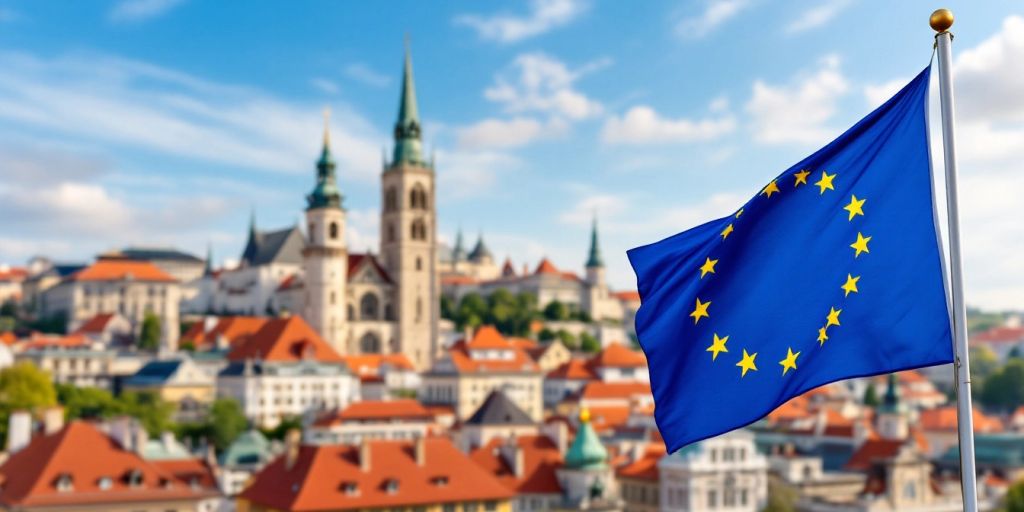Romania is on the verge of a significant milestone in its journey towards full membership in the Schengen Area. Recent discussions among European officials indicate that a decision regarding Romania’s accession could be made as early as December 2024, with expectations for travelers to enjoy borderless travel by Easter 2025.
Key Takeaways
- Romania is expected to join the Schengen Area for land borders by March 2025.
- Informal discussions are taking place in Budapest among key EU ministers.
- Three potential scenarios for Romania’s accession have been outlined.
Current Status of Romania’s Schengen Accession
The Romanian government has expressed optimism regarding its accession to the Schengen Area, particularly for land borders. Prime Minister Marcel Ciolacu has stated that the decision could be finalized by December, with the aim of allowing Romanian citizens to travel without border checks by Easter 2025.
Recent informal meetings in Budapest, initiated by Hungary, have brought together the interior ministers of Romania, Bulgaria, and Austria to discuss the timeline for Romania’s full entry into Schengen. These discussions are crucial as they set the stage for a formal announcement expected at the EU Justice and Home Affairs Council meeting in December.
Three Scenarios for Accession
Europarliament member Victor Negrescu has outlined three scenarios regarding Romania’s Schengen accession:
- Rapid Decision: A technical decision could be made by December 1, 2024, allowing Romania to join Schengen before the current European Commission’s term ends.
- Moderate Approach: The new European Commission may approve Romania’s accession during the upcoming Justice and Home Affairs Council meeting.
- Long-Term Delay: Political instability in Bulgaria or other unforeseen security events could postpone the decision.
Political Support and Cooperation
Romania’s leadership has been proactive in securing support for its Schengen bid. Prime Minister Ciolacu and Interior Minister Cătălin Predoiu have engaged in constructive dialogues with their European counterparts, emphasizing Romania’s commitment to border security and migration control.
The Austrian government, which has previously expressed reservations about Romania’s accession, is reportedly reconsidering its stance. Recent statements from Austrian officials suggest a willingness to support Romania’s full membership, contingent on ongoing discussions and cooperation.
Historical Context of Romania’s Schengen Journey
Romania’s path to Schengen membership has been long and complex, marked by various political and technical milestones since its EU accession in 2007. Key moments include:
- 2007: Romania meets the minimum criteria for Schengen membership.
- 2011: The European Parliament votes in favor of Romania’s accession.
- 2012-2022: Ongoing debates and political hurdles delay full membership, despite Romania fulfilling technical requirements.
- 2023: The European Commission closes the Cooperation and Verification Mechanism for Romania and Bulgaria, paving the way for renewed discussions on Schengen.
Conclusion
As Romania approaches a potential breakthrough in its Schengen accession, the focus remains on diplomatic negotiations and political will within the EU. With the support of key member states and a commitment to enhancing border security, Romania is poised to achieve its long-sought goal of full Schengen membership, allowing its citizens to travel freely across Europe without border checks.
Sources
- Discuții informale la Budapesta pentru aderarea României în Schengen. Surse: Decizia ar putea fi luată peste două săptămâni, Europa Liberă România.
- România „a intrat în linie dreaptă” pentru aderarea la Schengen terestru, anunță Victor Negrescu. „Există trei scenarii de lucru” | Digi24, Digi24.
- Marcel Ciolacu spune că România va fi în Schengen terestru până de Paști, Europa Liberă România.
- România ar putea adera complet la Spațiul Schengen mai curând decât se preconiza, susține o publicație austriacă | Digi24, Digi24.
- România a intrat „în linie dreaptă” pentru aderarea completă la Schengen. Cele trei scenarii luate în calcul – Știrile ProTV, Știrile Pro TV.

